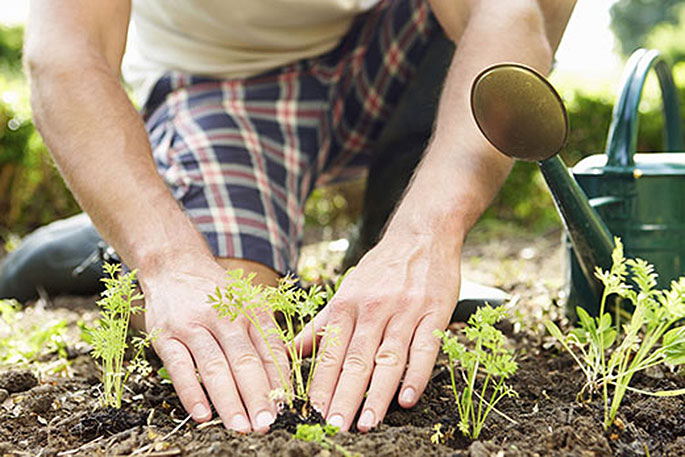Toi Te Ora Public Health is advising budding gardeners to take care this summer to avoid Legionnaires' disease.
They say there has been an increase in cases in the region.
According to WorkSafe anyone who works with bagged or bulk organic material such as garden soil, compost, mulch, or potting mix is at risk of inhaling Legionella bacteria – which causes the illness Legionellosis, also known as Legionnaires' disease.
Legionella is present in soil and soil products and can create serious infection when inhaled.
'We've recently seen an increase in the number of cases of this illness in our region,” advises medical officer of Health for Toi Te Ora Public Health Dr Lynne Lane.
'If you are using packaged or home-made compost or soil products, be aware that the bacteria can be present.”
Legionnaires' disease can vary in severity from a flu-like illness to severe pneumonia. Symptoms include fever, chills, muscle aches and pains, shortness of breath and coughing. Anyone who develops such symptoms within two to ten days after handling compost or potting mix should see their doctor without delay. Legionnaires' disease can be a serious illness requiring antibiotics and hospital treatment.
The disease is more common in older people, smokers, people with underlying lung disease and other long-term conditions such as diabetes. Young, fit and healthy people are rarely affected. The disease doesn't spread from person to person.
'There are simple steps you can take to reduce the risk of getting Legionnaires' disease,” says Dr Lane.
'When working with compost and potting mix, it's important to take measures to avoid inhaling the dust. Open potting mix by cutting rather than ripping the bag and open the bag away from your face. Take care when turning compost and gardens, handling packaged products, and collecting or handling trailer loads from bulk suppliers.
'Water gardens gently using low pressure, and, where possible, avoid working in unventilated places such as closed sheds and greenhouses unless wearing a mask” advises Dr Lane. 'When potting plants or preparing gardens for planting, gently wet the soil or compost first to reduce dust, and wash your hands after handling soil or compost. Use of a tight-fitting face mask is recommended especially when these other measures are not practical or possible.”
Retailers can also help to reduce the occurrence of this disease by displaying health warning and safety information prominently in areas where potting mix and other soil products are sold.
More information on signage and customer information recommendations can be found on the WorkSafe and Standards of New Zealand websites.
Enjoy the garden but remember to read and follow health advice on product labels and information provided by bulk suppliers of soil and compost products.
For more information on Legionnaire's Disease, go to www.toiteora.govt.nz/legionellosis.



3 comments
It would help
Posted on 16-11-2021 12:14 | By Mein Fuhrer
if the businesses that sell compost stored them appropriately out of direct sunlight while in their bags.
Terrible
Posted on 18-11-2021 14:20 | By Slim Shady
We need to introduce garden passes and make masks compulsory in the garden. $1000 fine for rule breakers.
Love it Slim!
Posted on 19-11-2021 11:39 | By Mein Fuhrer
and apparently the govt is set to introduce a new mandate, All New Zealanders will be required to wear nappies, on the off chance they could be infected with a case of diarrhea
Leave a Comment
You must be logged in to make a comment.